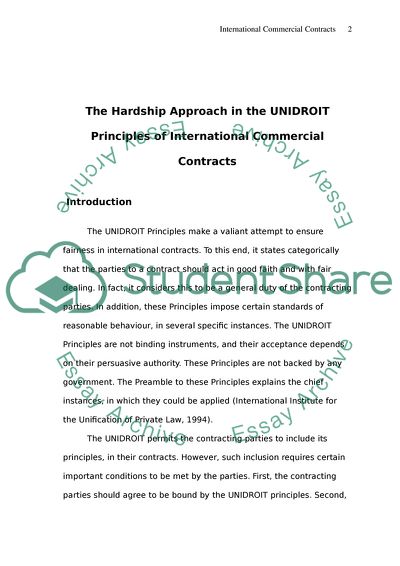Cite this document
(UNIDROIT Principles of International Commercial Contracts Research Paper, n.d.)
UNIDROIT Principles of International Commercial Contracts Research Paper. Retrieved from https://studentshare.org/law/1731532-the-hardship-approach-in-the-unidroit-principles-of-international-commercial-contracts
UNIDROIT Principles of International Commercial Contracts Research Paper. Retrieved from https://studentshare.org/law/1731532-the-hardship-approach-in-the-unidroit-principles-of-international-commercial-contracts
(UNIDROIT Principles of International Commercial Contracts Research Paper)
UNIDROIT Principles of International Commercial Contracts Research Paper. https://studentshare.org/law/1731532-the-hardship-approach-in-the-unidroit-principles-of-international-commercial-contracts.
UNIDROIT Principles of International Commercial Contracts Research Paper. https://studentshare.org/law/1731532-the-hardship-approach-in-the-unidroit-principles-of-international-commercial-contracts.
“UNIDROIT Principles of International Commercial Contracts Research Paper”, n.d. https://studentshare.org/law/1731532-the-hardship-approach-in-the-unidroit-principles-of-international-commercial-contracts.


